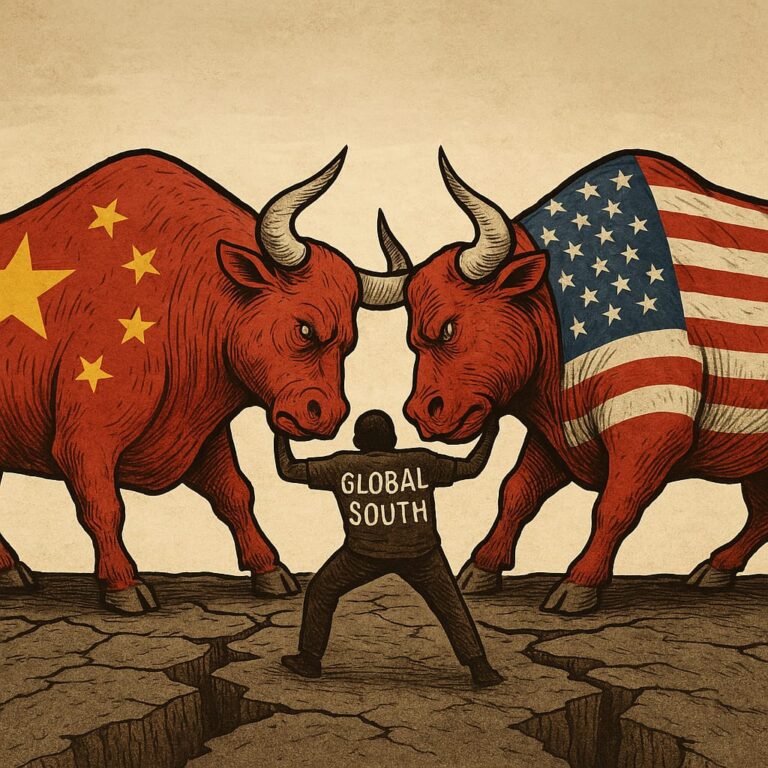
In the 21st century, few global developments have wielded as much transformative power as the ongoing tUS-China Trade War. What initially appeared to be a dispute over tariffs and intellectual property has steadily evolved into a struggle for global supremacy. This trade war is no longer just about economics—it is about ideology, technology, influence, and control. As the world’s two largest economies confront each other on multiple fronts, the tectonic plates of the international order are shifting beneath our feet.
The Origin: Trade Imbalance or Strategic Contest?
US-China Trade War reshaping the New World Order. The US-China trade war officially began in 2018 when former President Donald Trump imposed sweeping tariffs on Chinese imports, citing unfair trade practices, forced technology transfers, and massive trade imbalances. While trade deficits were the headline, the deeper cause was fear—fear of a rising China challenging the US-led liberal order. China’s rise has not followed the expected Western script of liberalization and democratization. Instead, it has embraced state capitalism and authoritarian control, using economic expansion to project geopolitical influence—from the South China Sea to African mining concessions, and through its ambitious Belt and Road Initiative (BRI). The United States, recognizing the threat to its hegemonic status, responded by erecting economic walls—tariffs, export bans, blacklisting companies like Huawei and TikTok.
The Real War: Technology, Data, and Narrative

Beyond soybeans and steel, the real battlefield is technology. The US knows that whoever controls the future of AI, semiconductors, 5G, and quantum computing will dominate the global economy and military landscape. America’s restriction on chip exports and efforts to isolate Chinese firms from global supply chains are strategic moves to contain China’s tech ambitions.
China, in response, is doubling down on self-reliance. It is pouring trillions into developing domestic chip manufacturing, AI platforms, and alternative systems like the digital yuan to rival the dollar’s dominance. Meanwhile, Beijing is crafting its own global narrative—one that positions China not as a threat, but as a responsible leader of a multipolar world order.
Global Fallout: Allies, Adversaries, and the New Cold War
The trade war has forced countries worldwide to reassess their allegiances. Europe finds itself in a difficult balancing act—relying on the US for security but dependent on China for trade. African and Latin American countries are wooed by Chinese investments, while Japan, India, and Australia are leaning toward the US-led Quad alliance to counterbalance Chinese aggression.
What we’re witnessing is the emergence of a new Cold War, not built on ideology like communism vs capitalism, but on a fierce competition for control over markets, innovation, and information.
Reshaping the World Order

The trade war has several profound consequences:
1. De-globalization and the End of the Unipolar Moment
Multinational corporations are “decoupling” from China, moving operations to Vietnam, India, and Mexico. This signals the decline of the once seamless global supply chain model. The era of US unipolar dominance is waning, giving rise to regional power blocs.
2. Currency Wars and the Fall of the Dollar’s Monopoly
China’s push for yuan-based trade and the digital yuan is a direct challenge to the US dollar. As countries seek to diversify reserves, the dollar’s global monopoly is being questioned—especially after the weaponization of SWIFT against Russia.
3. The Rise of Strategic Autonomy
Countries are increasingly asserting strategic autonomy. The EU seeks “technological sovereignty.” India pursues “Atmanirbhar Bharat” (self-reliance). Nations are no longer willing to be pawns in a binary US-China game.
4. Authoritarian Capitalism vs Liberal Democracy
The ideological fault line is growing. China’s success with state-led capitalism presents a viable alternative to the Western liberal model—especially for developing nations fed up with IMF-style conditionalities. This is triggering an existential debate: What governance model should power the future?
A Wake-Up Call for the Developing World
For countries like Pakistan, the Global South, and emerging economies, the US-China trade war offers both risk and opportunity. Aligning blindly with one power could lead to entrapment. Instead, the way forward is strategic balancing—leveraging competition to secure better investments, technology transfers, and trade deals while preserving sovereignty.



